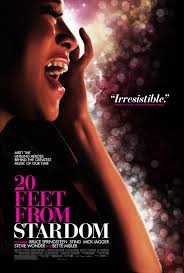All Work and No Play
I read Kareem Abdul-Jabbar’s newsletter fairly frequently, and without fail he has something insightful to offer (he’s as smart and as good a writer as he was at playing basketball, which seems a little unfair), often attributing his insight to his old UCLA basketball coach, John Wooden. A few months ago, Jabbar quoted Wooden: “Do not let making a living prevent you from making a life,” and Jabbar expanded on this teaching, saying, “It’s not just about taking more time off work to spend with friends and family, it’s also about how we lie to ourselves and others about our priorities. And how those lies prevent us from making a truly fulfilling life.”
Weighty stuff, that!
I’ve often professed that people are what they do, not what they say. It matters not if you say, “My children are the most important things in my life” if you rarely talk to, write to, visit or even think about them. It may be true that they hold a place in your heart, and I don’t want to diminish that, but the reality is that for many of us, we spend more time watching sports than we do with family, we spend more time working unnecessarily than we do pursuing friendships, and we spend more time scrolling through social media than we do pursuing a meaningful task. The time we spend doesn’t line up with what we claim to be most important in our lives.
Kareem goes on to comment on people who appear on reality shows and compete for money “for their family,” all the while spending more time away from family and begging for attention (like Elton John wanting to spend more time with family, and therefore embarking on a five-year farewell tour to prove it!). It’s a little harsh, but as Jabbar says, “People get married, buy houses, and put their kids through college without stranding themselves on an island or leaping forty feet into the water while grabbing a plastic flag.”
Wow. So how should we spend our time?
At the end of the movie Monty Python and the Meaning of Life, after 90 minutes of insane comedy sketches that include a grotesque live organ transplant and a large man vomiting profusely, the question of the meaning of life is finally answered: “Try to be nice to people, avoid eating fat, read a good book every now and then, get some walking in, and try and live together in peace and harmony with people of all creeds and nations.”
You could do worse!
But my pithy response to life’s biggest mystery is this: “The meaning of life is to live life meaningfully.”
If what you’re doing at this moment has meaning, you’re on to something. If it doesn’t, stop doing it and move on to another activity. Most of our time should be spent doing things that coincide with what’s most important. I’ve never been inclined to squander away a day, but I’ve been known to throw away an hour here or an hour there in ways I never would have done twenty years ago. Which is silly, because I have less time in this life now than I had twenty years ago! I shouldn’t be squandering another minute.
Or does growing older give you permission to squander some time but somehow feel at peace with it?
If so, I’m not quite there yet.
Time to get cracking.
